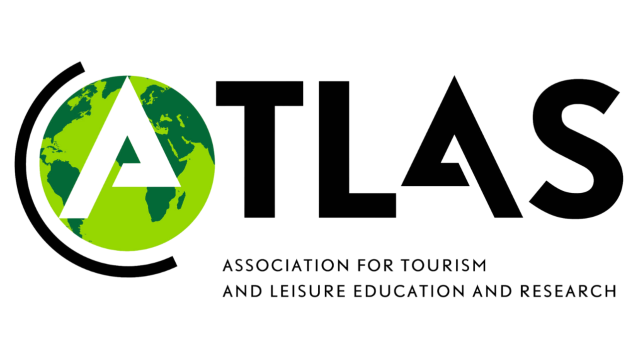Circular Economy
ATLAS Special Interest Group
Circular Economy and Circularity in the Space of Tourism and Hospitality
The coordinators for this Special Interest Group are:
Lucia Tomassini – NHL Stenden University of Applied Sciences, The Netherlands
Elena Cavagnaro – Professor at NHL Stenden University of Applied Sciences, The Netherlands
The Circular Economy is at the centre of a growing debate and legislative initiatives both within Europe and globally. In 2015, the European Commission adopted the Circular Economy Action Plan as a policy to accelerate Europe’s transition towards a Circular Economy. The Action Plan has been renewed in 2020. The United Nations identified the Circular Economy Action Plan as a best practice to prompt the implementation of the 2030 Agenda and the Sustainable Development Goals (SDGs). It is striking, therefore, that despite the increasing interest in the circularity paradigm, academics and professionals in the tourism and hospitality sector seem only partially involved in the discussion.
The Circular Economy has been so far investigated predominantly with regards to products and framed in terms of eco-effectiveness and eco-efficiency, with benefits at both environmental and economic levels. The implications of the Circular Economy for the space of tourism and hospitality have remained largely unexplored and under theorised, especially with regards to its social implications in a complex service-oriented sector like the one of tourism and hospitality. The idea of an economy that can become ‘circular’ is grounded into an ancient understanding of the cyclic patterns of continuous regenerative processes where ‘circularity’ appears as a principle of order and continuity. Hence, the idea of ‘circularity’ is an ancient archetype that human beings have used through the centuries to make sense of life on Earth, of the biological processes of our ecosystem, and of the cyclic nature of materials.
Framing circularity as a means to contribute to sustainable development in the space of tourism and hospitality implies being able to simultaneously create value in the environmental, economic, and social dimensions. While the latter is usually overlooked in studies and theorisations of Circular Economy, the creation of circular regenerative processes can generate new value in the social dimension by enriching it with a multiplicity of novel relations, connections, and networks among human and non-human stakeholders. This means also localising the tourism and hospitality economy and supply chain in the local space by creating ‘smaller’ loops prompting the active involvement of human (and non-human) stakeholders and re-designing new power-relationships, networks, and connections among them. This can happen because the ‘space’ of tourism and hospitality is not just a flat surface that people, capital, and products transit, but a multidimensional situation within which different types of relationships, networks and connections take place, together with different type of practices and behaviours. With regards to the latter, the Intergovernmental Panel on Climate Change (IPCC) highlights the pivotal role played by individual choices and behaviours in adopting new paradigms and – consequently – the need to focus on behavioural informed interventions. Therefore, a critical reflection on Circular Economy and a further exploration of the notion of ‘circularity’ in the space of tourism and hospitality can be interweaved with theorisations of degrowth – and a-growth – as well as with features of sociology of space, pro-social and pro-environmental behaviour, network theory, posthumanism, and collaborative economy.
If you want to contact the SIG coordinator, please fill in the form HERE
If you want to join this SIG, please fill in the form HERE
Annual review of activities 2024
In 2024, we launched the webinar series focusing on case studies from the industry about the transition to Circular Economy: opportunities and constraints. Such series aim to become a recurrent moment for SIG members providing first-hand experiences and elements of reflection to bridge theory to practice. The SIG produced two academic outcomes which were the result of a collective effort among the SIG’s members. Such outcomes were, respectively, a Research Note proposing an interdisciplinary approach to Circular Economy in Tourism and Hospitality and the proposal for the Routledge Handbook ‘Circular Economy in Tourism, Hospitality, and Leisure’ that will be developed during 2024 and 2025 to be finally published within 2026.
Activities in 2024
The activities consisted in:
- Case Study Webinar: “Circular Economy Transition in Hospitality: the experience of Garden Hotels in Mallorca, Spain” (https://www.youtube.com/watch?v=cFMFXcSPI5A&t=3s)
- A Special Track dedicated to this SIG within the ATLAS Annual Conference 2024 (https://atlas-euro.org/2024-6-breda-special-tracks/)
- SIG webinar with SIG’s members (to be planned in Autumn 2024)
- A Research Note on Circular Economy in Tourism and Hospitality has been co-authored by SIG’s members and is currently under review
- The proposal of a Routledge Handbook ‘Circular Economy in Tourism, Hospitality and Leisure’ has been approved.
1. SIG Webinar with industry representative
Friday 22nd of March 2024 (10:30 CET)
Case Giver & Speaker: Mrs Erica García-Nunez – Coordinator, Sustainability Department, Garden Hotels, Spain
Moderators: Dr. Lucia Tomassini and Prof. Elena Cavagnaro – NHL Stenden University
2. Special Track in the ATLAS Annual Conference 2024
25-28 June 2024
Breda, The Netherlands
3. Online meeting among ATLAS SIG members
Autumn 2024 – to be planned
4. Research Note on Circular Economy in Tourism and Hospitality co-authored by SIG’s members and is currently under review
Submitted January 2024 – under review
5. Routledge Handbook ‘Circular Economy in Tourism, Hospitality and Leisure’ co-edited by the two SIG’s coordinators & two of the core group supporters is work in progress. Within 2024 there will be Call for Chapters and Case study inviting SIG’s members to contribute.
Plans for the next year
For the next year we aim at:
- Including a Special Track within the ATLAS annual Conference 2025.
- Two webinars will be organised inviting a case-giver as key speaker (practitioner and/or academic)
- The Routledge Handbook on Circular Economy will be work in progress – after a Call for Chapter and the co-optations of several SIG’s members as contributors.
